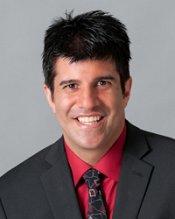Career Counseling For Connecticut Parents: The Need for Good Grades in the Global Economy
By Daryl CapuanoCollege CounselingTo paraphrase Thomas Friedman, author of The World Is Flat, who paraphrased Bill Gates:
Twenty years ago, from a purely career-financial perspective, if you had the choice of being a “B” student from Brooklyn or an “A” student from Bombay, you would choose the former because America’s economic domination was so thorough that opportunities were abundant for even our average students.
Today, however, many would choose to be the “A” student from Bombay.
Why?
The Internet’s power has created an interconnected world that outsources many knowledge based jobs.
In the 80s, many manufacturing economies did not see the challenge of outsourcing until their cities started shutting down.
Many children of manufacturing workers were “educated” with the expectation that they would be working at the local plant when they reached adulthood. Consequently, many parents did not put much emphasis on getting a college education. Their grown-up kids subsequently suffered as there were fewer jobs awaiting unskilled laborers.
There is a similar phenomenon taking place in the lower to mid-range level white collar world.
Those who have jobs that can be done at a fraction of the cost by an English-speaking worker from a different country (India as the most notable) are losing their jobs at a rapid rate. Perhaps more significantly, those who will be graduating with expectation of abundant entry level white collar jobs awaiting them will be greatly disappointed.
To give but one example, H&R Bloch, the noted tax preparation firm no longer hires thousands of newly graduated Americans with accounting degrees to prepare basic tax returns. Instead, most of the work is done by Indian accountants who work cheaper (and many would say harder and better) than the average new accountant from an average US college.
There is hope. Conceptually challenging work will still be required. And, while there is no doubt that Indians, among others, are quite capable of doing such work, higher end work is far harder to outsource. For example, corporations and high net worth individuals with complicated tax returns still need in-person discussion and time-sensitive management of issues. Those who can perform such work will still be in demand.
Metaphorically, those hired for the more conceptually challenging work will be the “A” students, not necessarily the “B” students and definitely not the “C” students.
The metaphorical challenge is not as significant as the literal challenge.
Despite the Great Recession, many parents are still in the 1980s-1990s mentality of US world economic domination where jobs were plenty for any student from any college.
They and many of the high school students we meet in Southeastern, CT do not fully understand that getting better grades will have a direct impact on their college choices which, in turn, will have a direct impact on their job prospects.
Occasionally, we meet well-meaning but misguided parents who seem to think that it does not matter where a student goes to college.
From a life experiential level, this may be true. And, to be clear, for certain career paths that do not require a high level pedigree, this is also true.
But, for those hopeful to enhance the entry level options that their student-children will have in the future, the level of college does make a difference. This is not a value statement. This is “just the way it is”. Its easier to get a job coming from Harvard than from Little Known U.
A few years ago, pre-Wall St. crash, we worked with a student from Essex, CT who attended Valley Regional High School. He had a problem turning in his homework on time.
Yet, he had grand ambitions for his career. He wanted to make a “ton of money on Wall St.”.
His grades, however, were consistently doomed by his attitude toward homework.
We met him when he was a senior at a prep school in Southeastern, Connecticut. It was too late to shift his college admissions opportunities (a 2.5 G.P.A. would not impress many admissions’ officials!). He was admitted to a non-prestigious college in New England with no history of sending its graduates to Wall St. or other top financial entry ways.
We are still working with him in a virtual tutoring capacity as he hopes to attain top grades to increase his job prospects. It would have been far better, however, had he understood the connection between grades and potential college choices years ago.
There are many wonderful opportunities that the new world of work presents. But, those are not prepared with a strong educational background may suffer the same fate as industrial workers in the late 20th century.
We can provides the tools to both help gain top grades and navigate the new world of work.

CEO, The Learning Consultants and Connecticut’s top private education consultant
full bio

